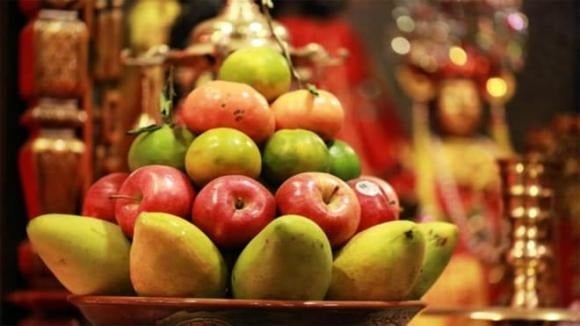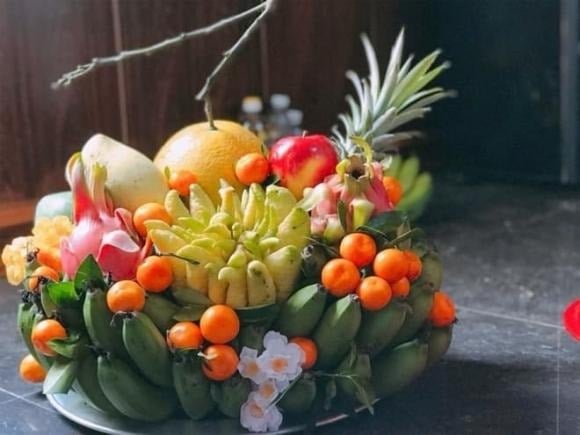The choice of an odd number of fruits is an important consideration when offering them as a sacrifice on an altar. This tradition is deeply rooted, and it is common to see people burning incense with odd numbers such as 1, 3, 5, 7, or 9. But why is odd considered auspicious, and is it acceptable to use even numbers instead?
The tradition of burning incense has been around for centuries and remains an integral part of cultural practices today. This act of offering incense and sacrifices to the altars of deities and ancestors serves as a symbolic connection between the physical and spiritual realms, bridging the living and the deceased.
Especially on significant days such as the full moon, the first day of the lunar month, death anniversaries, festivals, and holidays, Vietnamese people often burn incense to honor and pay respect to their ancestors. This practice is not only a beautiful cultural tradition but also contributes to the preservation of the country’s values and ethnic identity.
Fruits and flowers are essential offerings on the altar, and the number presented is a careful consideration for the host. It is customary to choose an odd number of fruits, such as 1, 3, 5, 7, or 9.
Why is incense burned with an odd number of fruits considered auspicious?
According to Feng Shui and spiritual beliefs, odd numbers (1, 3, 5, 7, 9) are considered symbols of growth, development, and good fortune. These numbers represent Yang energy, which signifies life, growth, and the flow of positive energy. Therefore, when burning incense or making offerings with an odd number of fruits, people wish for smoothness in life, abundant health, family harmony, and career success.
Additionally, odd numbers are seen as incomplete, representing continuity and longevity. Offering sacrifices with odd numbers during worship expresses the intention of the descendants to consistently burn incense and make offerings as a sign of reverence to their ancestors and deities, thus demonstrating their deepest respect and gratitude.

According to Feng Shui and spiritual beliefs, odd numbers are symbolic of growth, development, and good fortune.
Are there any consequences to using an even number of fruits?
Even numbers (2, 4, 6, 8) are generally associated with Yin energy, indicating completion, stillness, and a lack of encouragement for growth. In the context of worship, even numbers are often avoided because they imply an ending, which contradicts the desire for growth and progress in life and work.
Furthermore, even numbers are typically associated with funeral or death anniversary rituals. Therefore, during festive occasions, full moon days, or the first day of the lunar month, people refrain from using even numbers to avoid invoking thoughts of endings or a lack of prosperity.
Important considerations when burning incense
It is essential to keep the altar clean and tidy. A dusty or cluttered altar is considered disrespectful. It is worth noting that the cloth used for cleaning the altar should be designated for that purpose only and not used for other tasks.
The act of offering sacrifices and burning incense should be accompanied by prayers and invocations. Simply placing fruits on the altar and burning incense without any words will not hold any significance. One should recite prayers to invite the ancestors and deities to witness, protect, and bestow blessings of peace, good health, and smooth undertakings upon the family.

A clean and tidy altar demonstrates respect to the deities and ancestors.
When burning incense and praying, it is important to stay focused and avoid doing other things simultaneously. This shows respect and ensures the effectiveness of your prayers. Appropriate attire when burning incense should be modest and respectful, and the distance between you and the incense burner should be appropriate, neither too close nor too far. When taking incense, be gentle to avoid dropping or spilling it on the ground. If it is not convenient to use both hands, you may use your right hand.
If the incense goes out during the ceremony, take note of where it extinguished. If it’s at the top, it signifies “heaven,” relating to the altar or the roof of the house. If it goes out in the middle, it indicates “human,” relating to graves and land. If the incense goes out during the New Year’s Eve ceremony, it could foretell challenges in the coming year. Instead of pulling out and replanting the incense, relight it to maintain its sanctity.






























